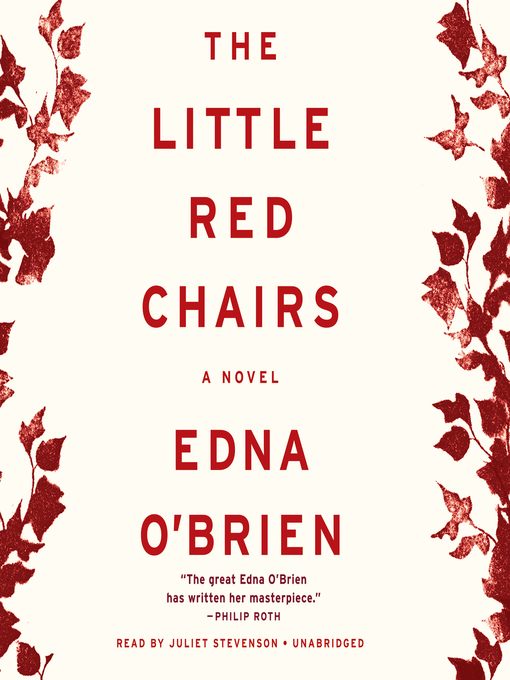
The Little Red Chairs
A Novel
کتاب های مرتبط
- اطلاعات
- نقد و بررسی
- دیدگاه کاربران
نقد و بررسی

November 9, 2015
In a melodramatic (and appropriate) opening, it is a “dark and stormy night” when stranger Vladimir Dragan arrives in Cloonoila, a small village in rural Ireland. Handsome, white-bearded Vlad calls himself a poet and healer. He ingratiates himself into the community, offering rejuvenating massages. An Irish village is, of course, O’Brien’s (The Love Object) traditional domain, and as usual she conveys the close, warm, slightly claustrophobic web of small-town relationships. Vlad is eventually revealed as “the Beast of Bosnia,” a ruthless military leader responsible for thousands of deaths in the recent genocide. But meanwhile, Fidelma McBride, a beautiful, sexually starved young woman married to an older man, is transfixed by Vlad’s charismatic personality. She abandons discretion and arranges trysts so that Vlad can fulfill her yearning to have a child. Tragedy ensues: Fidelma loses her marriage, her self-respect, and is forced to leave Cloonoila. The scene shifts to a vibrantly intense London, where a penniless Fidelma must take menial jobs. Vlad’s trial for war crimes in The Hague is another jarringly effective shift of scene; it serves as the culmination of his victims’ harrowing memories, which are scattered throughout the narrative. (The title refers to the 11,541 empty chairs set out in Sarajevo in 2012 as a national monument to represent people killed during the siege by Bosnian Serb forces.) Against this dark subterranean thread O’Brien interjects lines from classic poets—Virgil, Yeats, Byron, Dickinson—who attest to the enduring power of love. Fidelma’s eventual redemption seems forced, but O’Brien’s eerily potent gaze into the nature of evil is haunting. Agent: Ed Victor, Ed Victor Ltd.

After a charismatic foreign healer sets up practice in a sleepy Irish village, the residents find themselves caught in the aftershocks of war. O'Brien, a master at weaving the personal with the political, has a perfect partner in narrator Juliet Stevenson. Central to Stevenson's performance are the lovers: Fidelma's emptiness--both the cause and the consequence of her dalliance with Doctor Vlad--nearly echoes in Stevenson's voice. Doctor Vlad--seductively soft and controlled--is a convincing deceiver. Stevenson also crafts even seemingly incidental characters distinctly. That attentiveness pays off richly as the novel progresses, particularly with Mujo, a psychologically scarred functional mute whose voice eventually rises to an epic sound and fury. He reminds listeners that this is no mere tale of love gone wrong--it's a powerfully read modern parable. K.W. Winner of AudioFile Earphones Award © AudioFile 2016, Portland, Maine

























دیدگاه کاربران